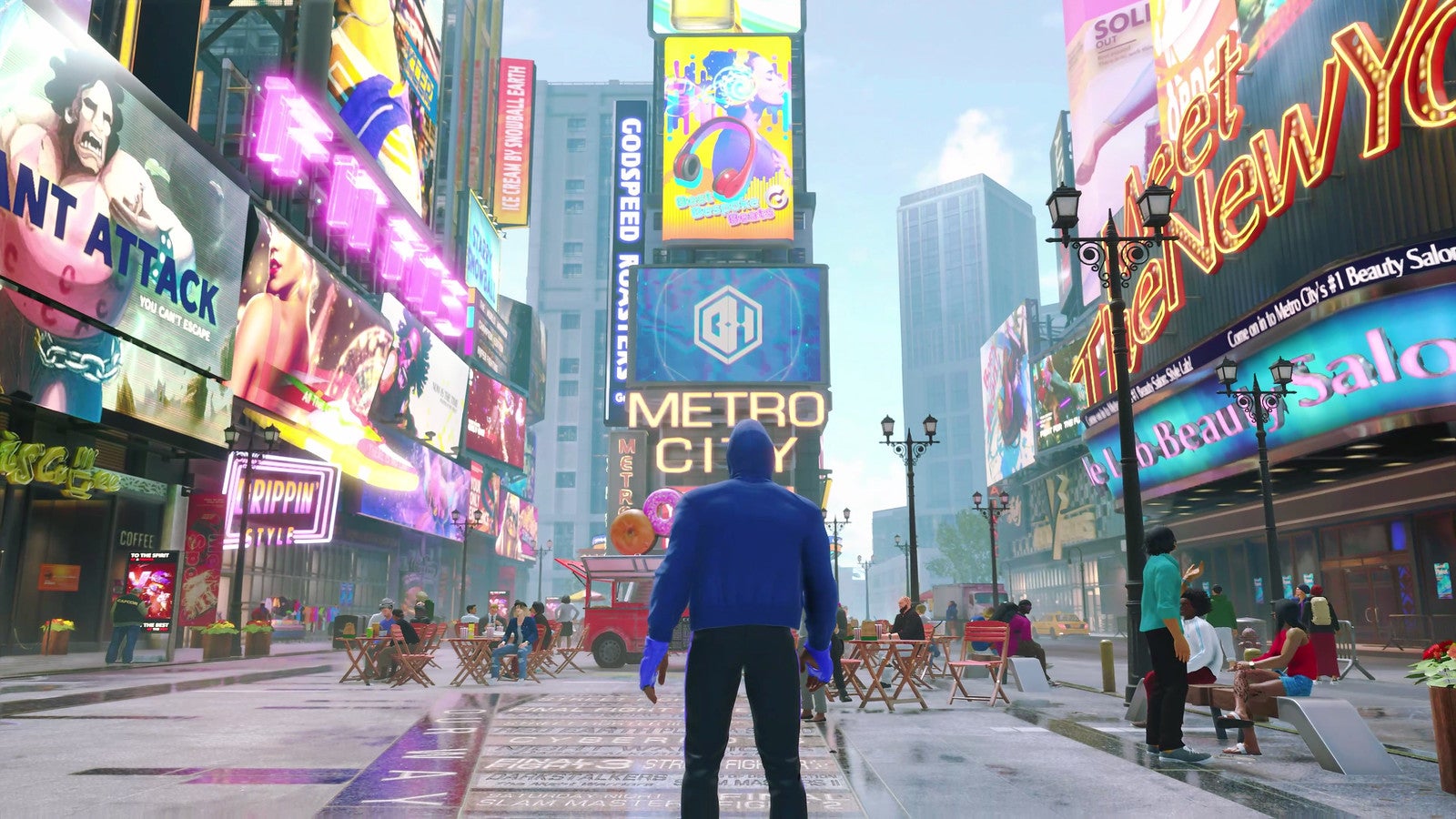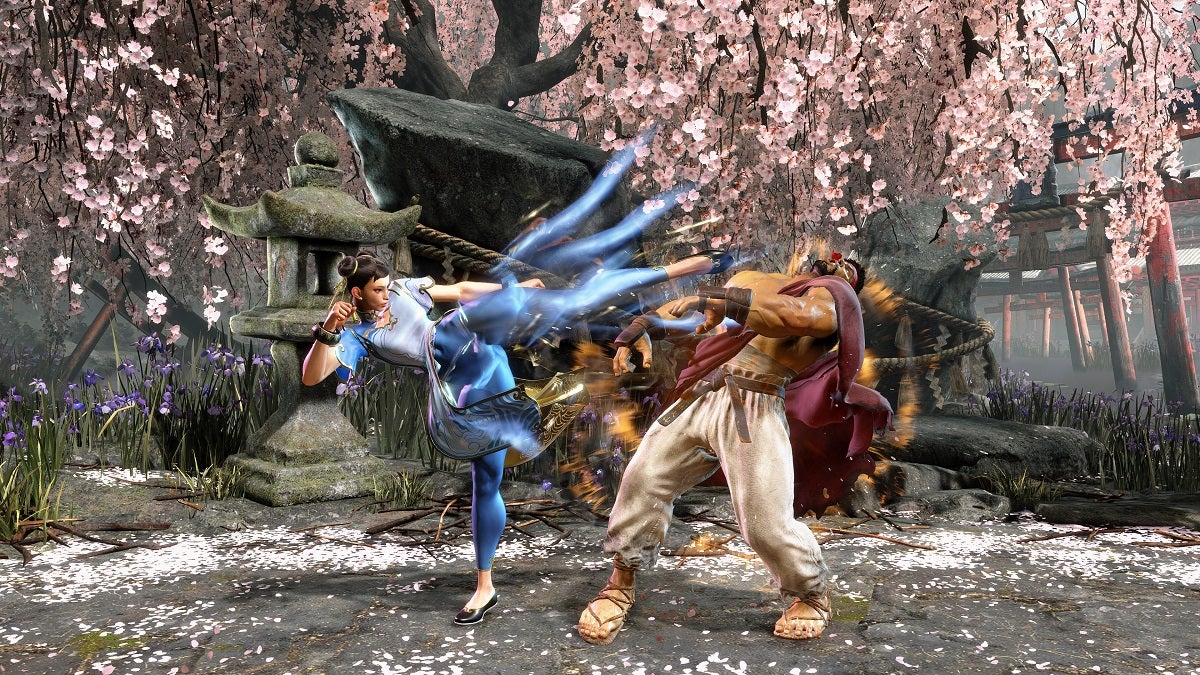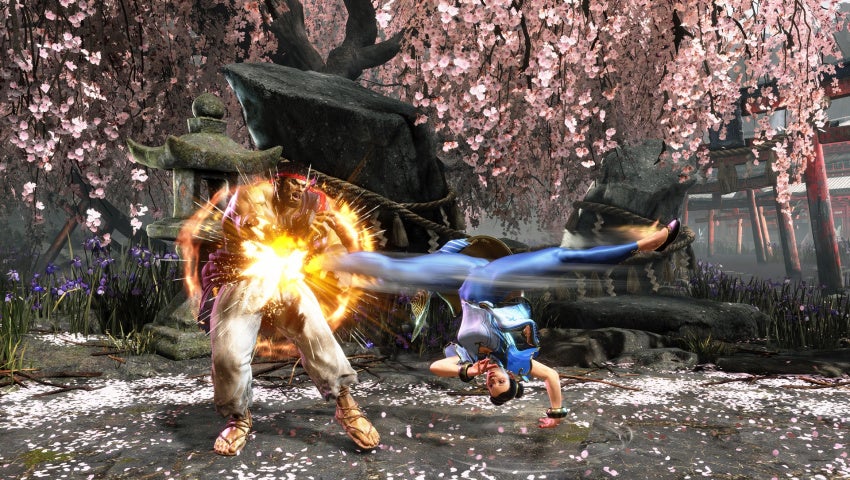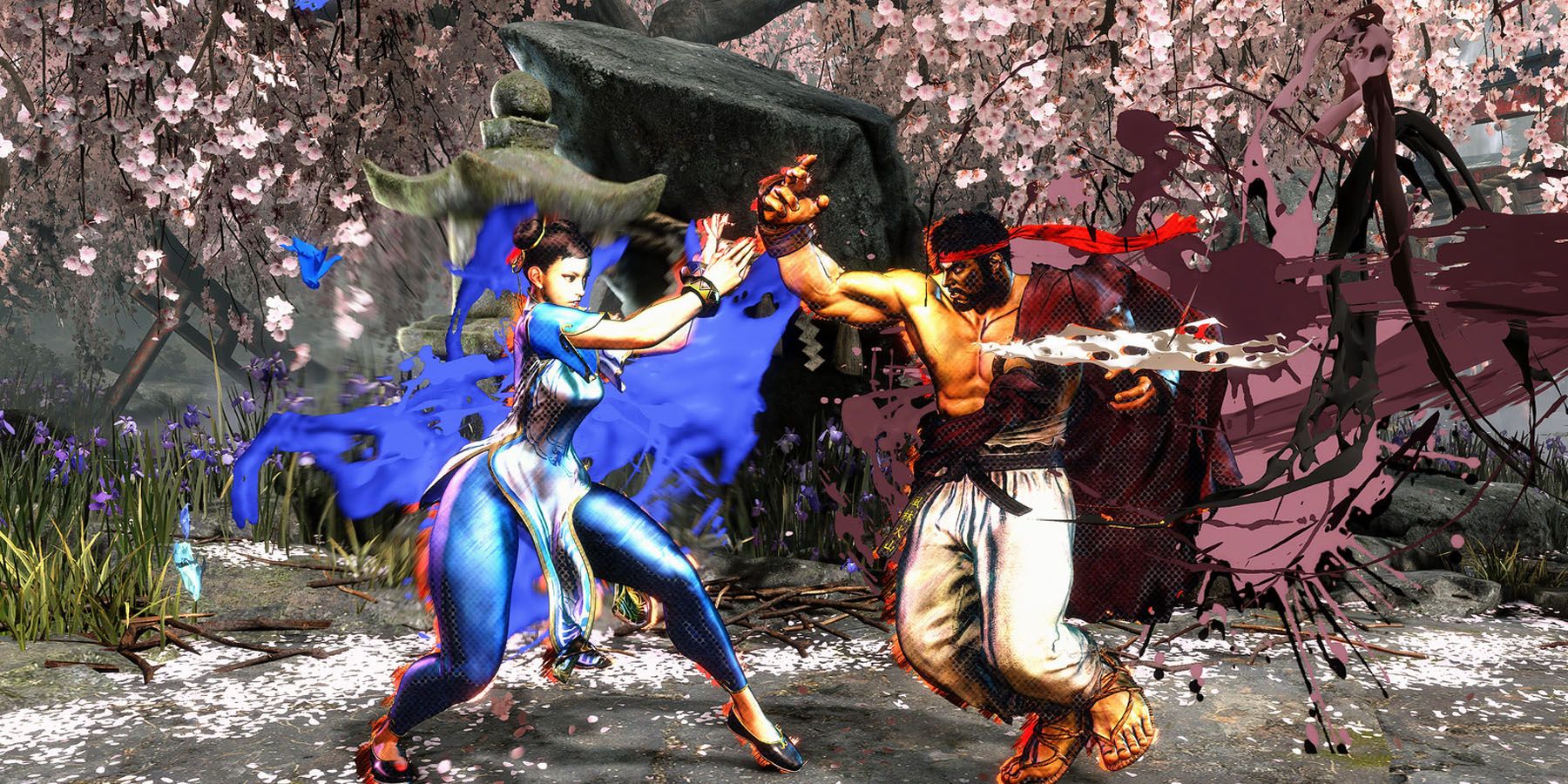Street Fighter 6 already feels a bit special, though, and more like a proper step forward for the series - something designed to capture the attention of the broad audience that Street Fighter 4 brilliantly played to, and something with a swagger and identity all of its own. With the timeline moving forward for the first time since Street Fighter 3, it’s a game that lets us see the original cast now that they’ve matured and grown older, where Ryu’s mellowed into his master status, Ken’s had his cockiness worn away having been run through the mill and everything feels that bit more relatable and more real. It feels like the product of a Capcom that’s a bit more seasoned and mature, and one that’s learnt from some of its mistakes. There are flashes of the Capcom of old in the way announcements around fundamentals like crossplay are being handled, but most else about Street Fighter 6 feels like the brilliant new Capcom - the one that’s wowed in recent years with its revival of Resident Evil and the deft manoeuvring of Monster Hunter into the mainstream, all powered by the magnificently muscular RE Engine. Street Fighter 6 feels every bit the continuation of that rich form. It’s a reimagination that promises to be every bit as bold as Resident Evil’s, the fundamentals refocused by way of its slick looking single player World Tour mode with its free roam hub, or the multiplayer-focussed Battle Hub that has your avatar patrolling what looks like a virtual arcade. Capcom’s not really talking about any of that right now, but they don’t really have to. For the past couple of days at Summer Games Fest they’ve let their demo pods do most of the talking, and judging from the excited chatter surrounding it Street Fighter 6 is very much the real deal. It plays a game of Street Fighter that’s at once complex and yet brilliantly simple - and it’s that simplicity that’s possibly the most exciting thing about Street Fighter 6. There are now two control options available to the player, the first offering the classic six-button layout - and aptly named Classic - while the second Modern configuration strips things down via smart shortcuts. To pull off a special move you no longer have to know the precise input command, nor have the skills to pull that off - you can simply hold down the Special Move button in conjunction with a single directional input, Smash Bros. style, to fling a fireball or pull into a dragon punch. It makes things simpler still by way of its assisted combos where you hold down a modifier button that then strings your attacks together for you, offering up a stripped back moveset that’s closer to hand. Some of the complexity is lost - it’s a bit like playing a racing game with traction control and ABS whacked up to the max, where things are that bit easier but you’re never fully in control to find those final extra tenths - but it’s all so much more approachable. For time-stretched casual players like myself, it takes the sting out of learning new characters. For people entirely new to fighting games, it’s going to take the sting out of learning a sometimes difficult genre too. Modern and Classic control modes co-exist in Street Fighter 6 - a bold choice given how vastly different the experiences are, but it’s a balancing act Capcom seems to be on top of. I’ve seen plenty of people entirely new to Street Fighter step up against more hardened veterans, emboldened by the new Modern control method. Talent and understanding of the deeper nuances of Street Fighter eventually win out, but thanks to the new control scheme new players aren’t tossed aside so quickly. What’s truly wonderful about it, though, is how it brings you much closer to Street Fighter 6’s really juicy stuff. I’m no Street Fighter expert - I’ve hundreds on the clock rather than the thousands that might qualify me to have an opinion worth taking seriously - but 6’s willingness to usher you past the finickety stuff of remembering input commands and combo strings puts you much closer to the strategy. It certainly makes it quicker to get to the essence of the combat, and it quickly reveals Street Fighter 6 to be a more complex thing than you might have first thought. At first sight I thought it seemed like Street Fighter 6 was forgoing the more in-your-face combat of Street Fighter 5 for something more grounded like Street Fighter 4. Play it though, and you think maybe it’s going for something akin to Street Fighter 3 with its parries. Or maybe, even, it’s just going for Street Fighter 5 with its aggressive Drive Impact moves, until you come across 6’s analogue of the beloved focus attack dash cancel as you break out of a parry to head into a Drive Rush and all of a sudden you’re thinking of Street Fighter 4 again. The really exciting thing about Street Fighter 6 right now is how rather than playing like any of its predecessors in particular it somehow plays like all of them at once. The masterstroke here, alongside that new approachability, could well be how it manages to bring all the different philosophies of Street Fighter together into one cohesive whole. The new Drive system is tasked with that, governed by a six meter bar you draw upon to utilise one of five techniques for combat, each of them feeling like a reminder of a Street Fighter past. “It’s quite different how we came up with the Drive system,” explains Nakamura of the returning mechanics like parrys and focus attack dash cancels have come back under the umbrella of the new system. “We were envisioning the outcomes and strategic experiences that players will eventually have and over time it just happened to include something like a parry system, and something like drive impact and so on. We’ve a lot of respect for for all these past games, but we started from wanting these experiences to happen over time. In terms of the Drive Gauge itself, we were calling it the concentration system where it represents the concentration that a competitor might have, and the overall concept came naturally and organically.from there.” It means that for all the simplicity that Street Fighter 6 offers via its new control method, the depths are truly delicious. It’s a Street Fighter that accommodates so many different types of play, one that offers instant gratification and yet still looks to reward serious study. There’s no better example of how effective it is in how easy it is to engage with Jamie, the drunken master who speaks to the flexibility of Street Fighter 6. Play with the Modern control scheme and within seconds you’re unleashing strings of elaborate attacks, pausing here and there to take on more booze to unlock further movesets - his appeal is instantly obvious, the quirky timing of the drunken master so satisfying that it feels natural after a couple of rounds playing with the simpler controls to kick off the training wheels and start to figure out how he really ticks. Conversely, get to grips with Ryu on the Classic scheme and it’s easy to get lost because there’s now so much on offer thanks to his freshly added charge and punchy new fireball on top of all the options the Drive Gauge presents. I’ve only played for 30 minutes or so, but already the head’s spinning with the possibilities Street Fighter 6 presents. And they’re possibilities that are in the grasp of mere mortal players like myself, which is what makes Street Fighter 6 such a prospect. It’s a fighting game designed so that we can all engage with its intricacies, and a Street Fighter that we can all get excited about. In that way it really does feel like Capcom’s signature series is properly back - and it feels fantastic.



